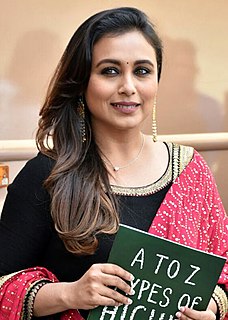A Quote by Margaret Stohl
We wanted to celebrate the 'Dangerous Deception' release by letting everyone experience the thrill of sharing a book with a reader who wouldn't otherwise have one.
Related Quotes
The book is finished by the reader. A good novel should invite the reader in and let the reader participate in the creative experience and bring their own life experiences to it, interpret with their own individual life experiences. Every reader gets something different from a book and every reader, in a sense, completes it in a different way.
Every reader, as he reads, is actually the reader of himself. The writer's work is only a kind of optical instrument he provides the reader so he can discern what he might never have seen in himself without this book. The reader's recognition in himself of what the book says is the proof of the book's truth.
When you get the ideas, that's a thrill; when you're writing the book and it's corning out well, that's a thrill; when you finish it and other people read it, that's a thrill. There are going to be reviews, of course; not everyone's going to love it. You feel sort of naked and vulnerable in a way. That's just a minor part of the process, really. If you can't take that part, you shouldn't be in the business. But there are so many joys to writing.
In my case, I made the decision early on that I was going to be very open about the book and claim upfront that each of the stories was based on my life experience. I think my reasoning goes back to what I was saying earlier, about wanting the book to be "more than a book," that I wanted the reader to feel a little unsettled about what they were reading: there's a core of factual truth here.
In my couple of books, including Going Clear, the book about Scientology, I thought it seemed appropriate at the end of the book to help the reader frame things. Because we've gone through the history, and there's likely conflictual feelings in the reader's mind. The reader may not agree with me, but I don't try to influence the reader's judgment. I know everybody who picks this book up already has a decided opinion. But my goal is to open the reader's mind a little bit to alternative narratives.
I always loved writing songs - writing for myself and demo-ing songs, really with no intention of ever letting anyone else hear them. Finally the Foo Fighters stuff happened when I just went to the studio down the street from my house and recorded some stuff in about five or six days, and all these people wanted to release it as an album. I wanted to release it on my own, with no photos and no names on it.
Love and happiness inextricably combined? I wanted love stories to coincide with war stories, I wanted hope for my characters, I wanted a sense of a future. So do they. So does the reader. But perhaps I shouldn't speak for everyone when I say that love and happiness are interdependent. In my own experience, happiness came with love. Specifically, my wife. That's when my own apathy and stasis ended for good.
I wanted to pack a lot into the lyric, but not go beyond its bounds. Some have written that I wanted to expand what the lyric could do. I just want the hugeness of experience-which includes philosophical discursiveness-to move at a rate of speed that kept it (because all within one unity of experience) emotional. Also, often, questions became the way the poems propelled themselves forward It brings the reader in as a listener to a confession[.] A poem is a private story, after all, no matter how apparently public. The reader is always overhearing a confession.






































